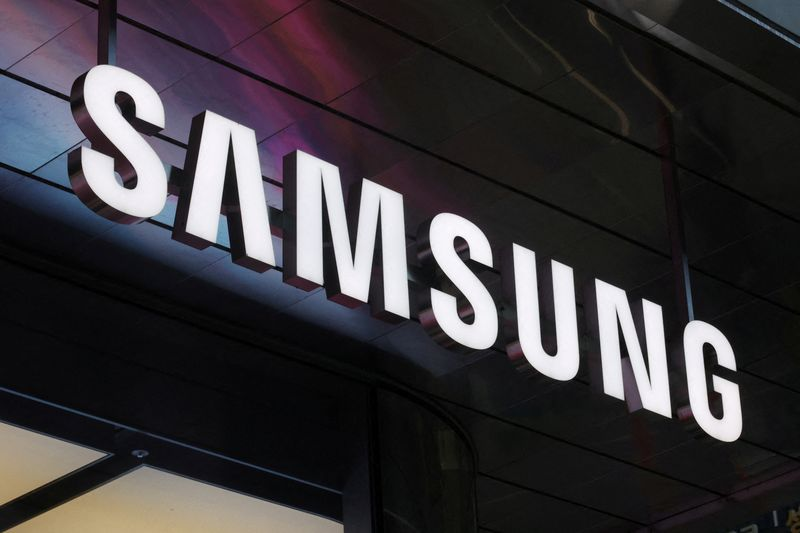Samsung Electronics said on Thursday a trade deal that will see Washington charge 15% tariffs on imports from South Korea reduces uncertainty and it forecast major chip orders after signing a $16.5 billion deal with Tesla.
"Building on this milestone, we anticipate securing additional orders from large customers," Samsung Vice President Noh Mi-jung said of its contract chipmaking business during an earnings conference call.
Samsung expected its U.S. chip factory in Texas to begin production in 2026, she said.
The comments came after the company posted 4.7 trillion won ($3.37 billion) in operating profit for the April-June period, its weakest earnings in six quarters. That was roughly in line with an earlier estimate that had disappointed investors.
The South Korean tech giant forecast a gradual second-half recovery for its chips business. Second-quarter operating profit at the division plunged 94% from a year earlier, it said, due to chip shipment delays and U.S. export curbs on advanced semiconductor sales to China.
Tesla said this week it had signed a $16.5 billion deal to source chips from Samsung’s new factory in Taylor, Texas, bolstering the tech giant’s struggling contract business.
Samsung said on Thursday it expected the industry environment would improve in the second half, driven by artificial intelligence demand due to continued investments by major cloud service providers.
Major tech companies Meta Platforms and Microsoft on Wednesday pointed to strong AI chip demand and major investments in data centres in their earnings announcements.
But hours after U.S. President Donald Trump announced he would place 15% tariffs on South Korean goods, Samsung added there were concerns about slowing global growth due to an uncertain trade environment and geopolitical risks.
"We believe that the uncertainty has been reduced through the conclusion of negotiations between the United States and South Korea," Samsung Chief Financial Officer Park Soon-cheol said.
"We are closely monitoring the follow-up discussions between the two governments regarding the detailed contents of the recently announced agreement, and we plan to formulate our response strategy accordingly," he added.
Samsung’s second-quarter revenue rose 0.7% to 74.6 trillion won, in line with its earlier estimate of 74 trillion won.
Its chip division posted a profit of 400 billion won during the quarter, down from 6.5 trillion won a year earlier, marking the first time in six quarters that the figure has dropped below the 1 trillion won mark.
Samsung said in a statement that inventory value adjustments to memory chips and one-off costs from the impact of U.S. export restrictions on sales to China on its contract chipmaking business lowered the division’s profit.
Prolonged weakness in its financial performance has deepened investor concerns over the South Korean tech giant’s ability to catch up with smaller rivals in developing high-bandwidth memory chips sold to customers including Nvidia and used in AI data centres.

Shares of Samsung were down 1.1% in morning trade, underperforming the flat benchmark KOSPI index.
- CONTACT US
- sales@ic365buy.com
- +00852-6763-0779
- Feedback
- FOLLOW US




Smart-Core Cloud International Company Limited Copyright ©2019-2026 SMC All Rights Reserved




